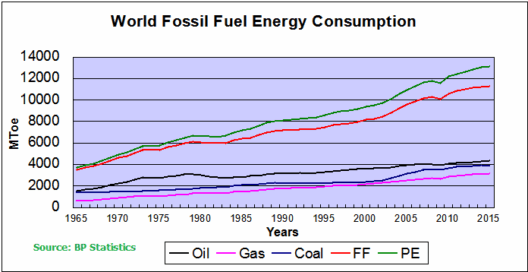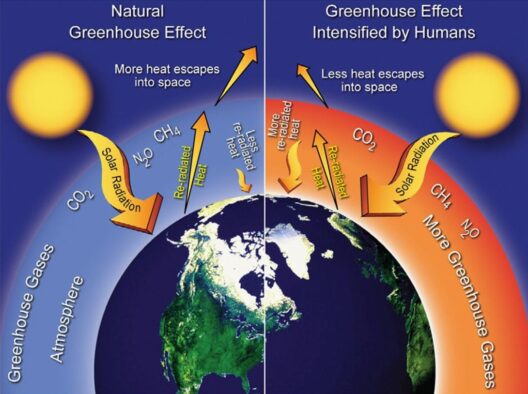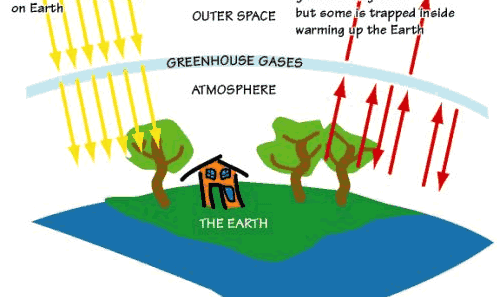Global warming, a salient facet of anthropogenic climate change, raises a pressing query: Can it simply dissipate on its own? The answer is unequivocally complex, stemming from both scientific data and socio-economic considerations. Examining the various dimensions of climate change illuminates the necessity for deliberate action rather than passive hope.
At the crux of the matter lies the understanding of greenhouse gases (GHGs), which are integral to the greenhouse effect— a natural process that warms the Earth. However, since the Industrial Revolution, human activities, such as fossil fuel combustion and deforestation, have exacerbated GHG concentrations, leading to an unprecedented rise in average global temperatures. With this understanding, it is crucial to recognize that merely wishing for climate conditions to revert to a pre-industrial state is insufficient. Global warming will not magically vanish; rather, it requires concerted efforts and policy initiatives.
To dissect this phenomenon further, one must explore the myriad impacts of global warming. Rising sea levels, intensified weather events, and shifts in ecosystems are but a few alarming consequences of sustained high temperatures. The Intergovernmental Panel on Climate Change (IPCC) outlines projections that foreshadow dire conditions if mitigation measures are not adopted swiftly. The notion that the planet could restore its equilibrium without intervention undermines the tangible risks posed to biodiversity, agriculture, and human health.
A crucial aspect of climate change discourse involves examining climate feedback mechanisms. For instance, as polar ice melts, the Earth’s albedo effect diminishes, leading to accelerated warming. This self-reinforcing cycle posits that stepping back and avoiding proactive measures could lead to irreversible changes within natural systems. The relevance of this phenomenon underscores the imperative for immediate action in tackling climate change.
However, discussions on climate solutions often hinge upon economic implications. Transitioning to renewable energy sources, enhancing energy efficiency, and implementing sustainable practices demand substantial investments. For some, the economic burden of such undertakings seems daunting. Yet, the long-term costs of inaction—manifesting as damage to infrastructure, public health crises, and loss of productivity—may far outweigh the initial investments in sustainable technologies. By eschewing a myopic view, stakeholders can appreciate the multitude of benefits associated with robust climate action.
The concept of “climate justice” also warrants elaboration in this context. As climate impacts are disproportionately felt among vulnerable populations, addressing global warming necessitates equitable solutions that prioritize low-income communities. These populations often lack the resources to adapt to escalating climate-related challenges. Advocating for inclusive climate policies not only fosters social equity but also culminates in more comprehensive mitigation strategies.
Moreover, engagement on climate action extends beyond policy formulation; it encompasses public education and grassroots movements. Increasing awareness about environmental stewardship plays a pivotal role in empowering individuals and communities to take initiative. From local reforestation projects to initiatives aimed at reducing single-use plastics, countless grassroots movements offer practical avenues for citizens to contribute positively to their environments.
The disconcerting reality is that while the prospect of global warming abating independently remains implausible, there is an abundance of actionable solutions at our disposal. Technological advancements in carbon capture, sustainable agriculture, and circular economies provide tangible pathways toward mitigating climate impacts. These innovations not only bolster efforts to curb emissions but also serve as catalysts for economic growth and job creation within the green sector.
International cooperation stands as another critical pillar for effective climate action. The Paris Agreement represents a global acknowledgment of the climate crisis, with signatory nations committing to limit warming to well below 2 degrees Celsius. However, the effectiveness of such agreements hinges on accountability and adherence. Enhanced collaboration across nations can facilitate the sharing of resources, knowledge, and technology, thus amplifying the collective impact of climate initiatives.
To galvanize climate action, diverse stakeholders including governments, corporations, and individuals must coalesce in their efforts. Corporate responsibility has gained traction, with many companies pledging to reduce their carbon footprints and engage in sustainable practices. This trend must persist and expand, as businesses play a pivotal role in influencing consumption patterns and resource use on a global scale.
Nevertheless, confronting the reality of climate change necessitates resilience in the face of obstacles. Resistance to change often manifests from entrenched interests, delays in policy implementation, and public skepticism. Continual advocacy, transparency, and dialogue are imperative in dismantling barriers to effective climate action.
In summation, the assertion that global warming could dissipate autonomously is fundamentally flawed. The complexity and urgency of climate change demand immediate and comprehensive responses. Collective action, economic investments, education, and international collaboration are pivotal to mitigating the consequent threats posed by climate change. Failure to act decisively now will not only jeopardize environmental integrity but will also threaten human survival in myriad forms—future generations deserve the prescriptive measures and initiatives currently within our reach. Only through rigorous engagement and unabated dedication can we aspire to curtail the unyielding grip of climate change and pave a sustainable path forward.







